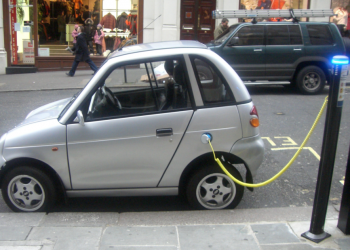
Could electric cars crash Burson Group?
It’s the mantra of the value investor, we should not only examine the potential returns that an investment can generate but also the potential for downside, i.e. how much of an investment could be lost and how likely is this to occur?
Electric cars are clearly a risk for any manufacturer/retailer or distributor whom relies on the trade of car parts that interact in some way with oil. Simply put, electric cars don’t use oil, so items such as oil filters will become a thing of the past. Notably a significant holding in the Montgomery portfolios, Burson Group (ASX: BAP), currently makes a pretty penny from these products.
What hedges this downside for the company however is that whilst the electric car has no need for oil, it’s reliant on a complex array of electronics and computerised systems. This hardware will need scheduled maintenance & upgrades (and hence new parts which Burson can wholesale) as technology improves over time. Further, electric cars still require batteries, brake pads and other parts of which Burson are already supplying to the market.
It’s fair to say that we’re a long way from the electric car becoming mainstream, but even then it appears unlikely to derail Burson’s success.
Scott Shuttleworth is an analyst at Montgomery Investment Management. To invest with Montgomery domestically and globally, find out more.
This post was contributed by a representative of Montgomery Investment Management Pty Limited (AFSL No. 354564). The principal purpose of this post is to provide factual information and not provide financial product advice. Additionally, the information provided is not intended to provide any recommendation or opinion about any financial product. Any commentary and statements of opinion however may contain general advice only that is prepared without taking into account your personal objectives, financial circumstances or needs. Because of this, before acting on any of the information provided, you should always consider its appropriateness in light of your personal objectives, financial circumstances and needs and should consider seeking independent advice from a financial advisor if necessary before making any decisions. This post specifically excludes personal advice.
INVEST WITH MONTGOMERY
I suspect electric cars will have a bigger impact on the auto replacement parts industry that you imagine. Not only oil filters, but numerous parts relating to fuel, coolant, ignition and exhaust systems as well. Basically most of the bits that are currently changed at a service.
Computerised electronic auto engine management systems have been extremely reliable with minimal maintenance requirements. Also, upgrading of these systems is basically unheard of. The upgrade occurs when you buy a new car!
It will be interesting to see how Burson and others reposition themselves in light of these changes, though as you say, they will have plenty of time to think about. The internal combustion engine has been remarkably resistant to its much forecast demise. A more immediate problem may be loss of OEM business due to cessation of local automobile production, though one would assume this is close enough to already have been factored into share prices.
Funny, I was sitting at a traffic light today with a Burson distribution van to my right, and a BP petrol station across the road, and thinking about the whole petrol vehicle -> EV shift and the repercussions.
My concern specifically with Burson is that some of the leaders in electric vehicles are cutting out the middle man on the consumer facing side (dealers). It seems that new entrants (Apple theoretically) will likely do the same. Does that mean the death of the independent mechanic? Will a new breed of tire/brake/battery/software check-up providers emerge? Currently Tesla vehicles are only serviced by Tesla employees at Tesla servicing departments.
Apple on the other hand would probably recognise “Apple Approved” service centres if their computer after sales model is anything to go by, though since their retail stores have taken off there seems to be less independent Apple techs around.
So the next question is how much market share will these disruptors take? I have heard (maybe on this blog) it takes about a decade to replace 50% of the cars on the road, which I guess gives ample time for incumbents to recalibrate.
And what of oil? I mean sure a 20 year revolution to EV gives plenty of time for BP et al to pivot… but will they? Will death come so slowly that they seem irrelevant by the time they try to convince consumers they still have a place? How long will it be before the idea of a “petrol station” is as antiquated as video tapes?
This stuff doesn’t keep me up at night but it sure is fun to ponder. You guys have to probably take it a little more seriously!
What is your current thoughts on BAP roger? Lots of acquisitions of late. I exited at 3.30 to settle a property purchase but would love to enter back in again.
It’s a great business with very little macro economic downside. Lots going it’s way….very defensive growth.